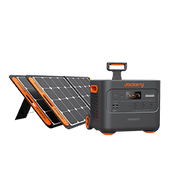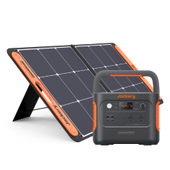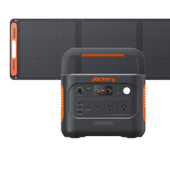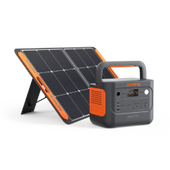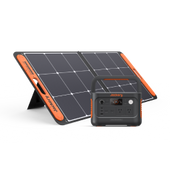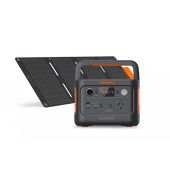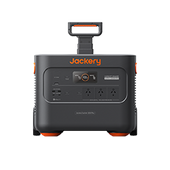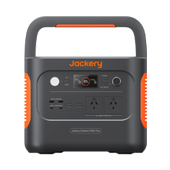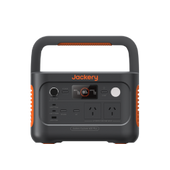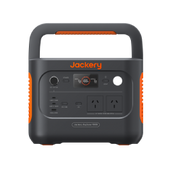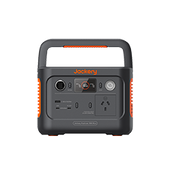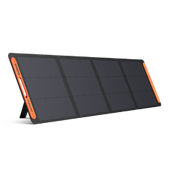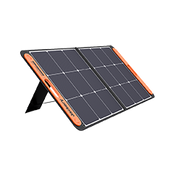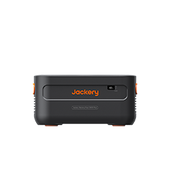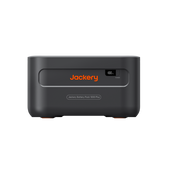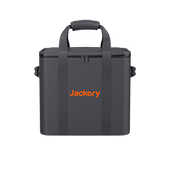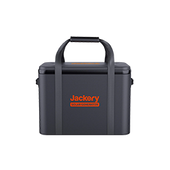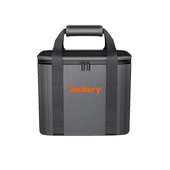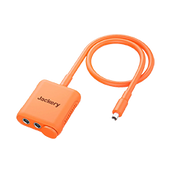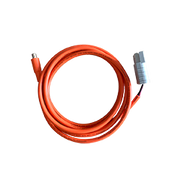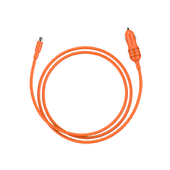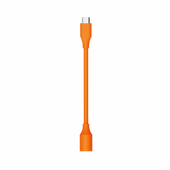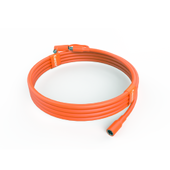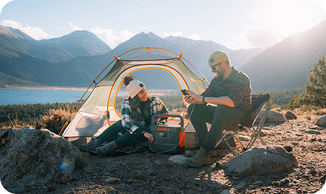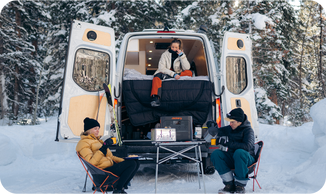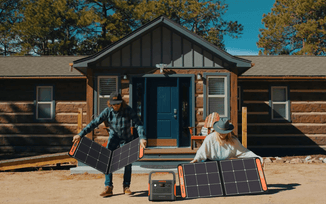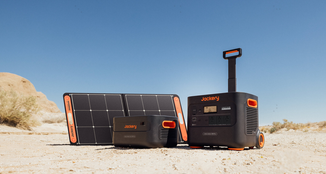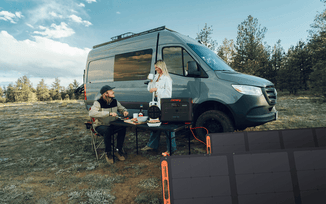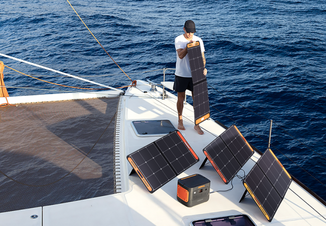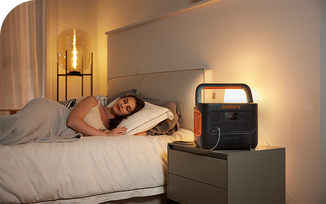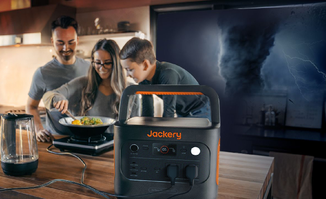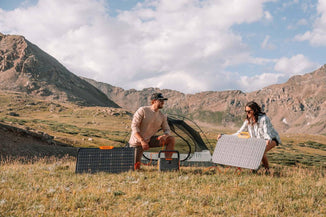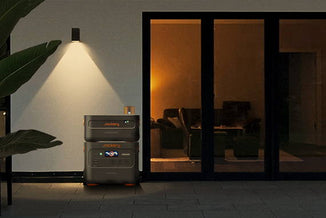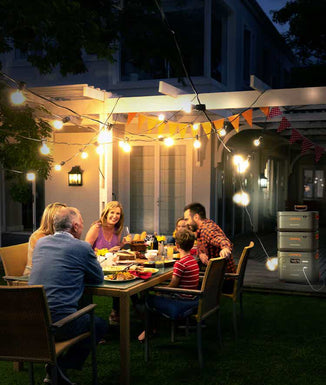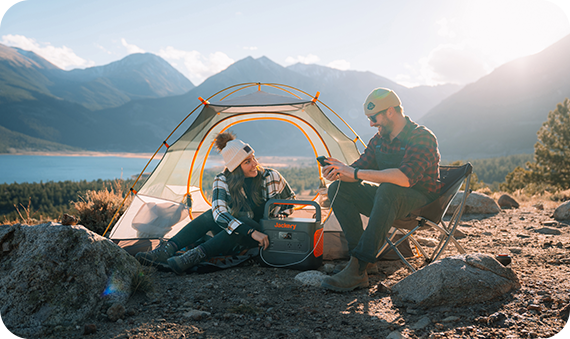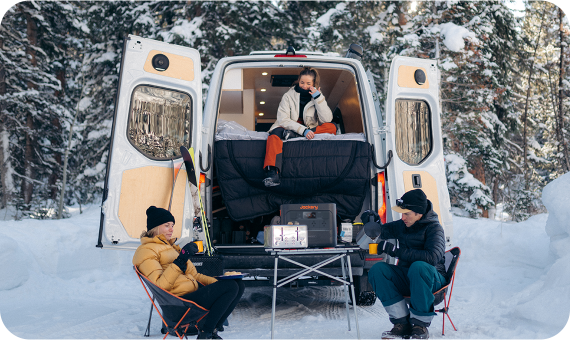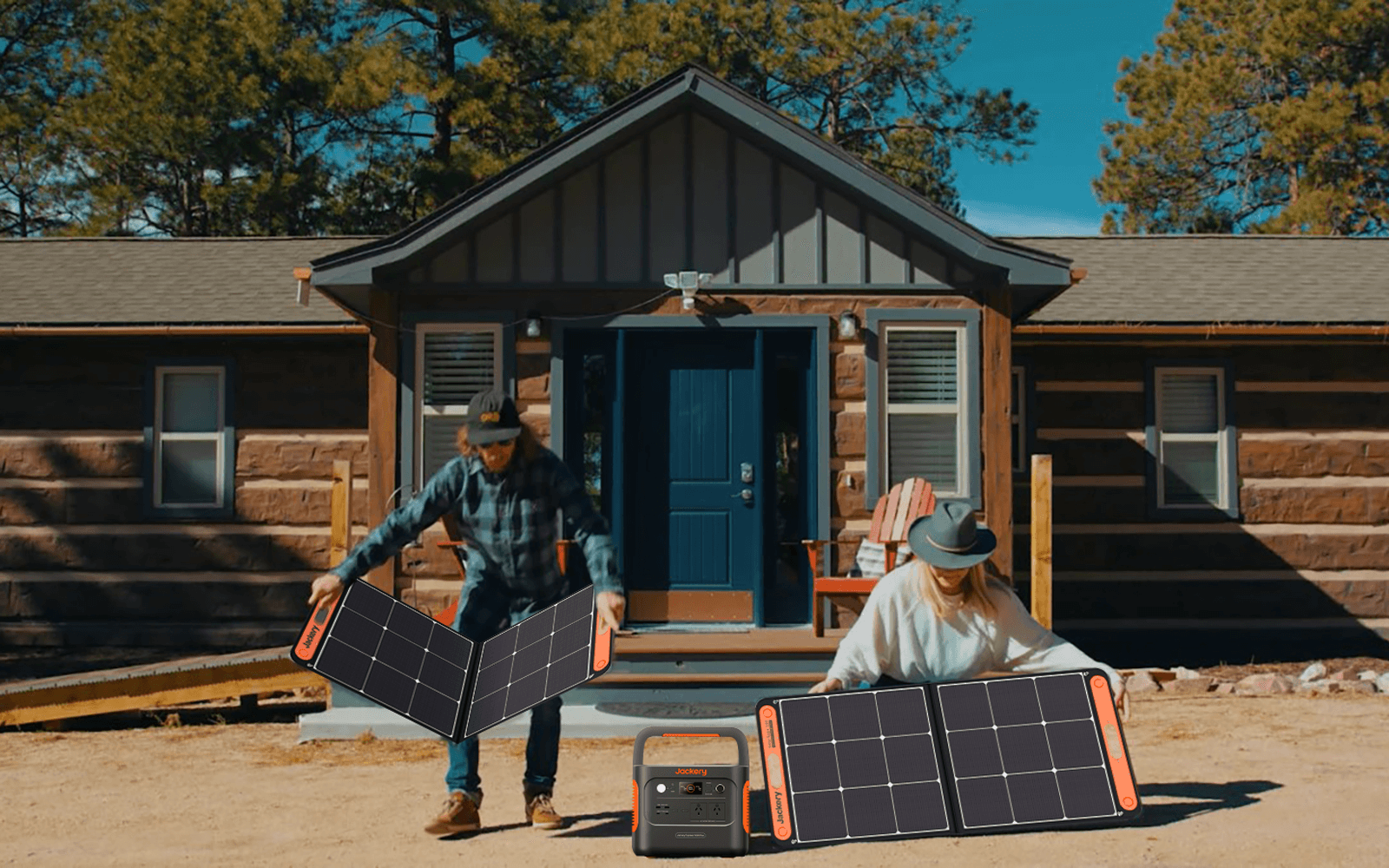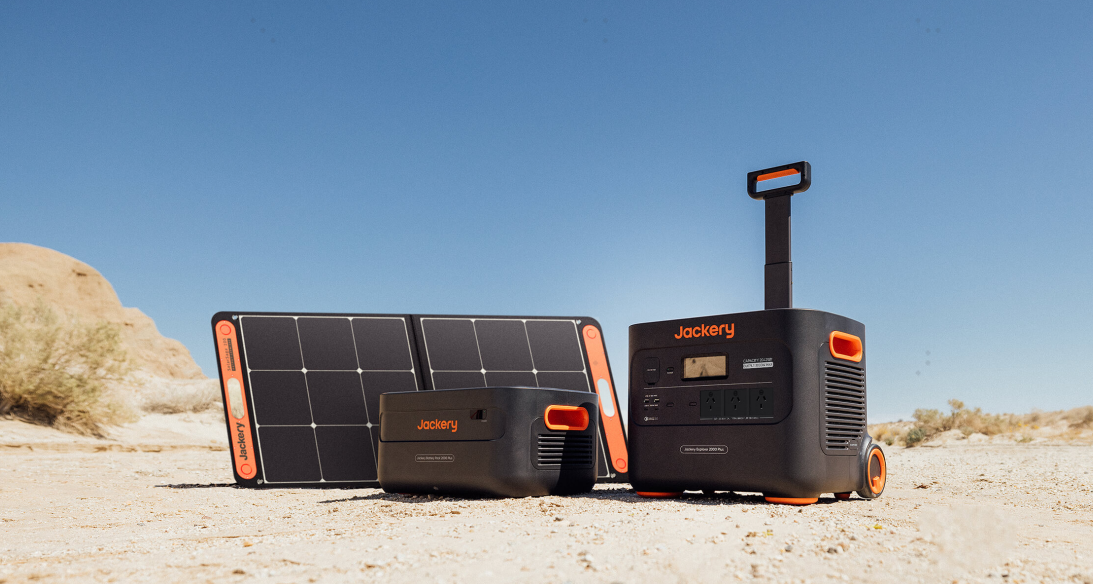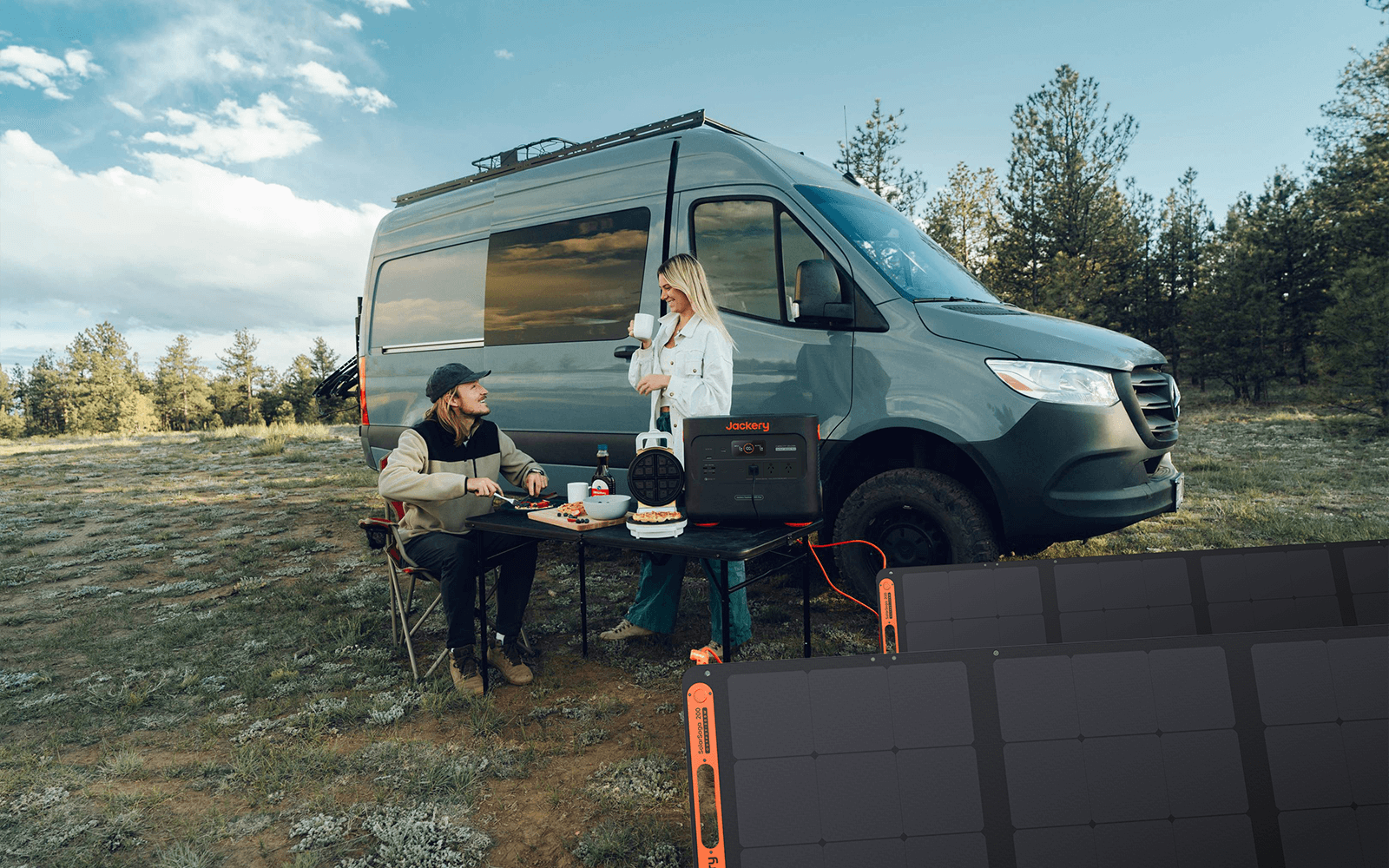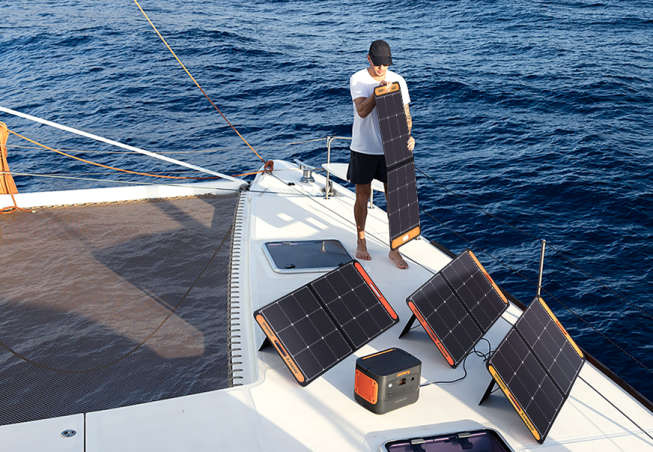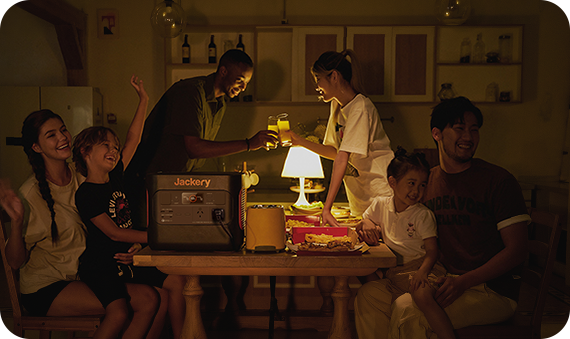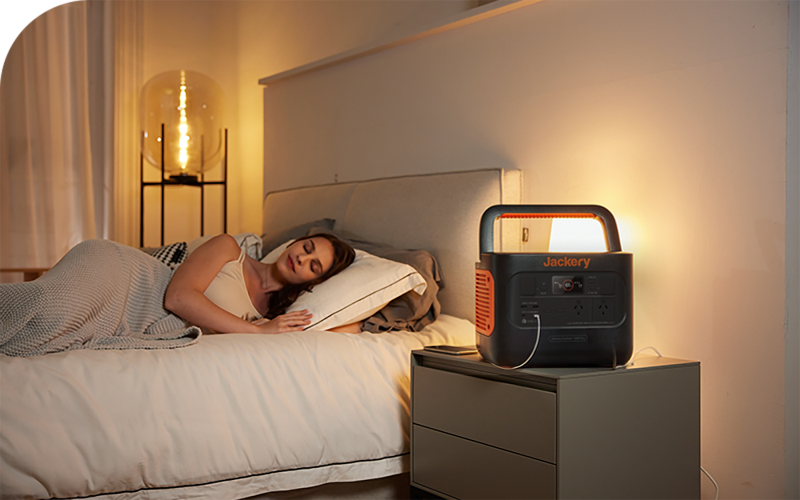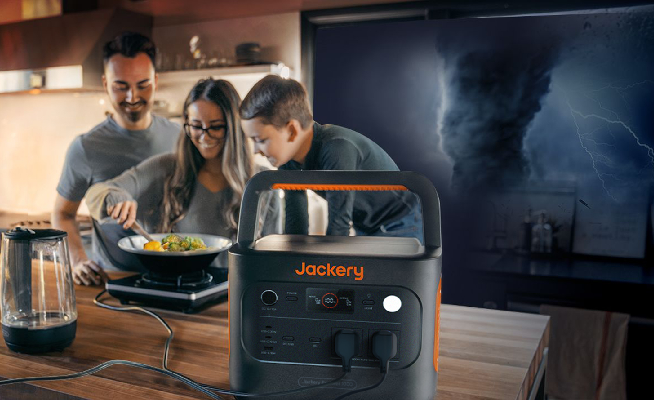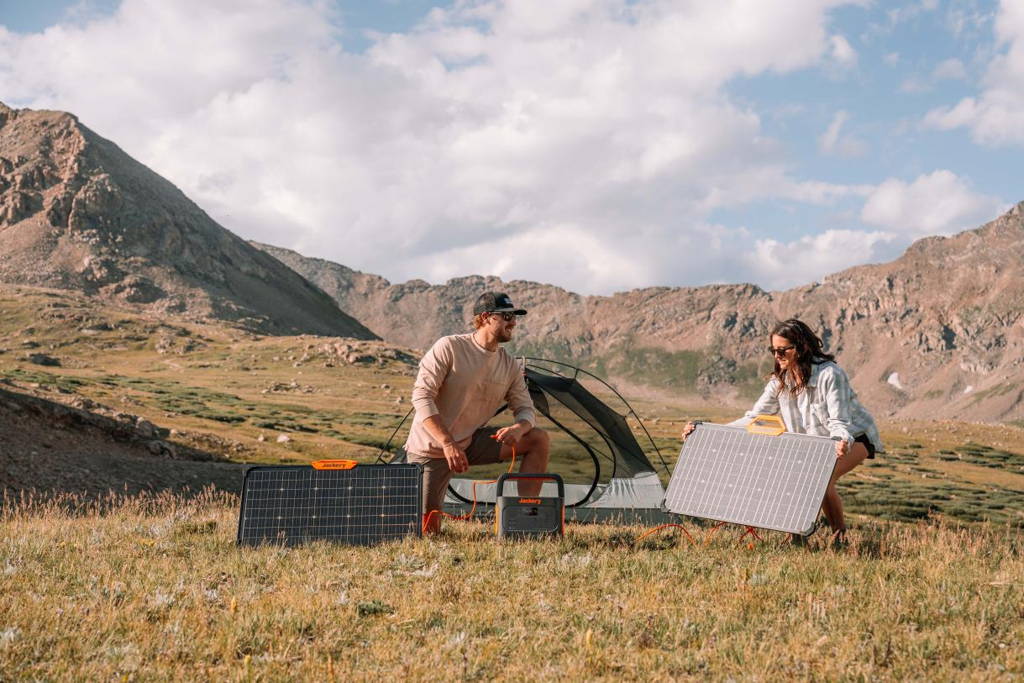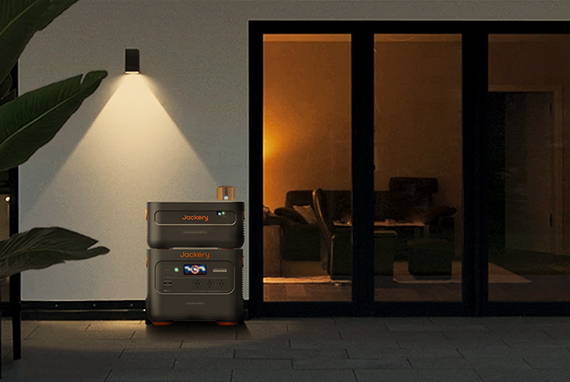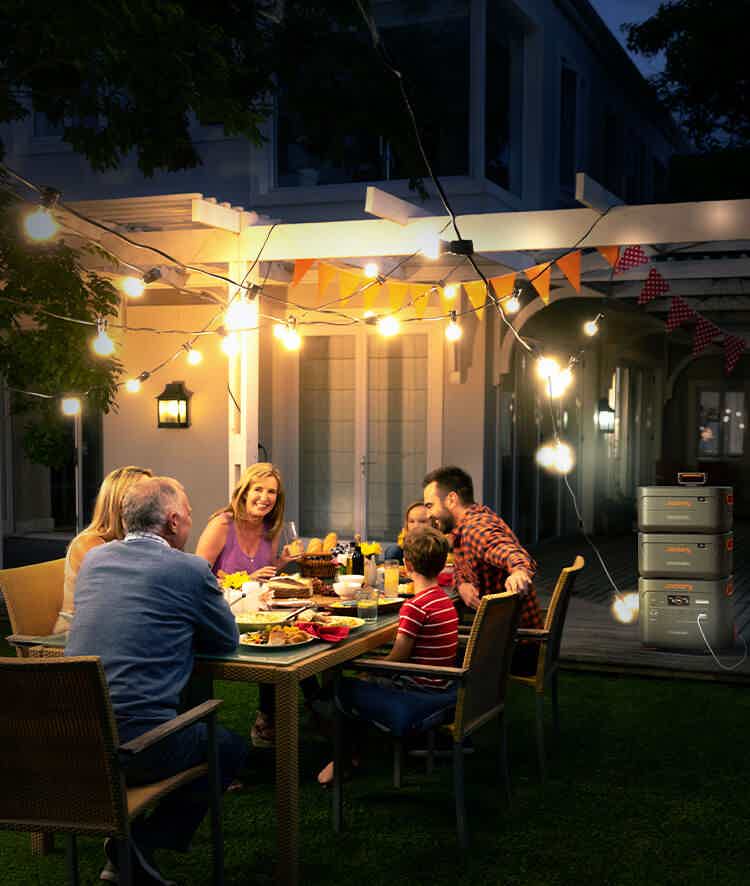What Is The Quietest Generator for Camping in Australia
What Is The Quietest Generator for Camping in Australia
There are occasions when a quietest generator is required. You may be camping, operating a food truck, or laboring in a residential neighborhood. Silent generators are also an excellent choice for residential and commercial standby power; the last thing you want during a power disruption is a noisy generator.

For anyone in the market for a silent generator, it's our range of portable power stations running on rechargeable lithium batteries that will ensure that you still sleep soundly no matter where you're sleeping – at a campsite, in your caravan, under a tree - Jackery Solar Generators are the quietest generator for camping and any other outdoor excursions.
Series
Image
Capacity
AC Power
Peak Power
Noise Level
Solar Generator 1000 Plus

1264Wh
2000W
4000W
30dB
Solar Generator 1000 v2

1070Wh
1500W
3000W
22dB
Solar Generator 600 Plus

632Wh
800W
1600W
22dB
This page explains everything you need to know about the quietest generator for camping in Australia, including what it is, how to measure the noise level of a generator, the best options, and noise reduction recommendations. The Jackery Solar Generator 1000 Plus, 1000 v2, and 600 Plus are recommended as the generators with the lowest decibel level.
Key Takeaways:
In campgrounds and recreational areas, generators should be at most 65 decibels.
The noise level of camping generators is equally as essential as their power output.
A decibel (dB) is a unit of measurement used to quantify the sound pressure level.
The decibel level of most portable gas generators ranges between mid-70 and mid-80 dB. In contrast, solar generators generate less than 60 dB of noise. Jackery Solar Generators are below 53 dB, equivalent to the sound level of rain.
When choosing the quietest generator for camping, you must consider its power output, portability, renewable power source, and operation noise level.
Jackery Solar Generators provide the quietest camping generators in Australia, available in various configurations. as low as 53 decibels.
There are many ways to reduce the noise level of a generator: make soundproof enclosure, place the generator away from the campsite, or non-peak time using.
What Is A Quiet Generator for Camping?
A quiet generator produces less than 60 decibels of noise, whereas a loud generator produces more than 80 decibels.
In campgrounds and recreational areas, generators should be at most 65 decibels; otherwise, you'll have a disgruntled neighbor. In urban and residential areas, generators should be at most 75 decibels.
A generator is a piece of equipment designed to provide consumers with access to reliable power when needed, independent of a mains connection. There are a variety of generator designs and types of power inputs. If you want the quietest generator for camping, you should look for a solar generator.
Rather than operating a noisy engine, they are designed to produce as little noise as possible, typically in the 60 decibels region, roughly equivalent to a quiet conversation.
Why Noise Level of Generator for Camping Matters?

How to Measure The Noise Level of A Generator for Camping?
Noise Source
Degree
dB (decibels)
Firework
Painfully loud
140 dB
Jet Plane
Uncomfortable
120 dB
Car Horn
Very loud
110 dB
Lawnmower
Very loud
90 dB
Alarm Clock
Loud
80 dB
Vacuum Cleaner
Loud
70 dB
Conversation
Moderate
60 dB
Rainfall
Moderate
50 dB
Whisper
Soft
30 dB
How to Choose The Quietest Generator for Camping?
- Power Output
- Portability
- Renewable Power
- Quiet Operation
Jackery Solar Generators: The Quietest Generator for Camping

How Much Solar Power Does A Camping Need in Australia?
Solar Power Needed (Wh or kWh) = Power Consumption (W or kW) x Using Time (H)
Camping Appliances
Wattage
Time
Solar Power Needed
Camping AC
1300W
2H
2600Wh
Portable Fan
120W
3H
360Wh
Portable Shower
500W
10Min
83Wh
Radio
10W
3H
30Wh
Coffee Maker
300W
10Min
50Wh
Blender
300W
10Min
50Wh

Jackery Solar Generator 1000 v2
Jackery Solar Generator 1000 Plus 30 dB noise level is comparable to rainfall's. With a capacity of 1264Wh and a 2000W output, the Jackery 1000 Plus supports up to 99% of household devices. It's expandable up to 5 kWh with additional battery packs, offering 1-3 days of power in case of outages. Imagine running essentials like your fridge, lights, and even laptops without using grid electricity.
Featuring advanced solar charging, the Explorer 1000 Plus reaches full power in just 4.5 hours with four SolarSaga 100W solar panels. It also supports rapid wall charging, fully charging in only 1.7 hours. This flexibility lets you choose the fastest, most convenient way to power up, giving you quick and reliable energy whenever needed.

Jackery Solar Generator 1000 Plus

Jackery Solar Generator 600 Plus
How to Reduce The Noise Level of A Generator for Camping?
- Try Quiet Camping Generator: As previously mentioned, quiet camping generators are designed to produce less commotion than standard generators. Look for generators with low decibel ratings, preferably between 50 and 60 decibels.
- Make Soundproof Enclosure: A soundproof enclosure can help reduce generator pollution significantly. These enclosures are designed to absorb and deflect noise and can easily be transported and installed around your generator.
- Place Away From Campsite: The greater the distance between your campsite and the generator, the less commotion you will hear. In addition, it is advisable to position the generator on a flat, elevated surface to prevent noise from echoing off the ground.
- Non-Peak Time Using: If camping in a designated campground, operate your generator during off-peak hours when other campers will be less likely to be disturbed by the noise.
The Quietest Generator for Camping in Australia FAQs
These are the most frequently asked questions about the quietest generator for camping in Australia:
1. What size of solar generator do I need for my camping?
Jackery Solar Generators produce minimal commotion and operate at the speeds your appliances require. While sleeping, very few devices should be working, so the silent generator will be quietest precisely when you need it.
Jackery Solar Generators are portable solar-powered energy generators that are even more silent than a whisper. Before determining the size of the solar generator you need, you must evaluate your electricity usage.
Depending on the consumer's requirements, Jackery Solar Generators have capacities ranging from 240Wh to 2,016Wh. The formula for calculating your device's operating time is as follows:
Working Time = Power Station Capacity*0.85 / Your Device's Operating Wattage
For instance, charging a 300W blender using the Solar Generator 2000 Plus (2042Wh capacity) will take 5.8 hours (2042Wh*0.85/300W).
2. How quiet should a generator be for camping?
At a distance of 5 feet, it is generally recommended to use a generator with a noise level of 60 decibels or less, which is comparable to the sound of a normal conversation. Nevertheless, many campgrounds have specific laws regarding generator use and noise levels. Checking the campground rules where you plan to remain is always a good idea.
3. Is 65 dB loud for a generator in a camping?
Some individuals may find a generator emitting 65 dB too noisy, while others will find it acceptable. A 65 dB generator would be between a normal conversation and the noise of a car traveling 60 miles per hour; however, the distance from the sound source will influence its volume.
Some people may find that extremely noisy, while others may not be disturbed by it. Consider purchasing Jackery Solar Generators, the quietest generator for camping, with noise levels ranging from 37.9 to 53 decibels.
Final Thoughts
Frequently, generators could be more quiet. Some campgrounds limit how noisy a generator can be, and you may be asked to turn it off if it exceeds that limit. Therefore, we wanted to emphasize some of the quietest generators for camping.
This page explains what a quiet camping generator is, how to assess the noise level, the best picks, and how to reduce the noise level of a camping generator. Jackery Solar Generators are the quietest camping generators, with a noise level between 22 dB and 30 dB.
Best-selling Jackery Solar Generator
PAGE CONTENTS
New Arrival
Hurry up! Sale ends once the timer hits zero

